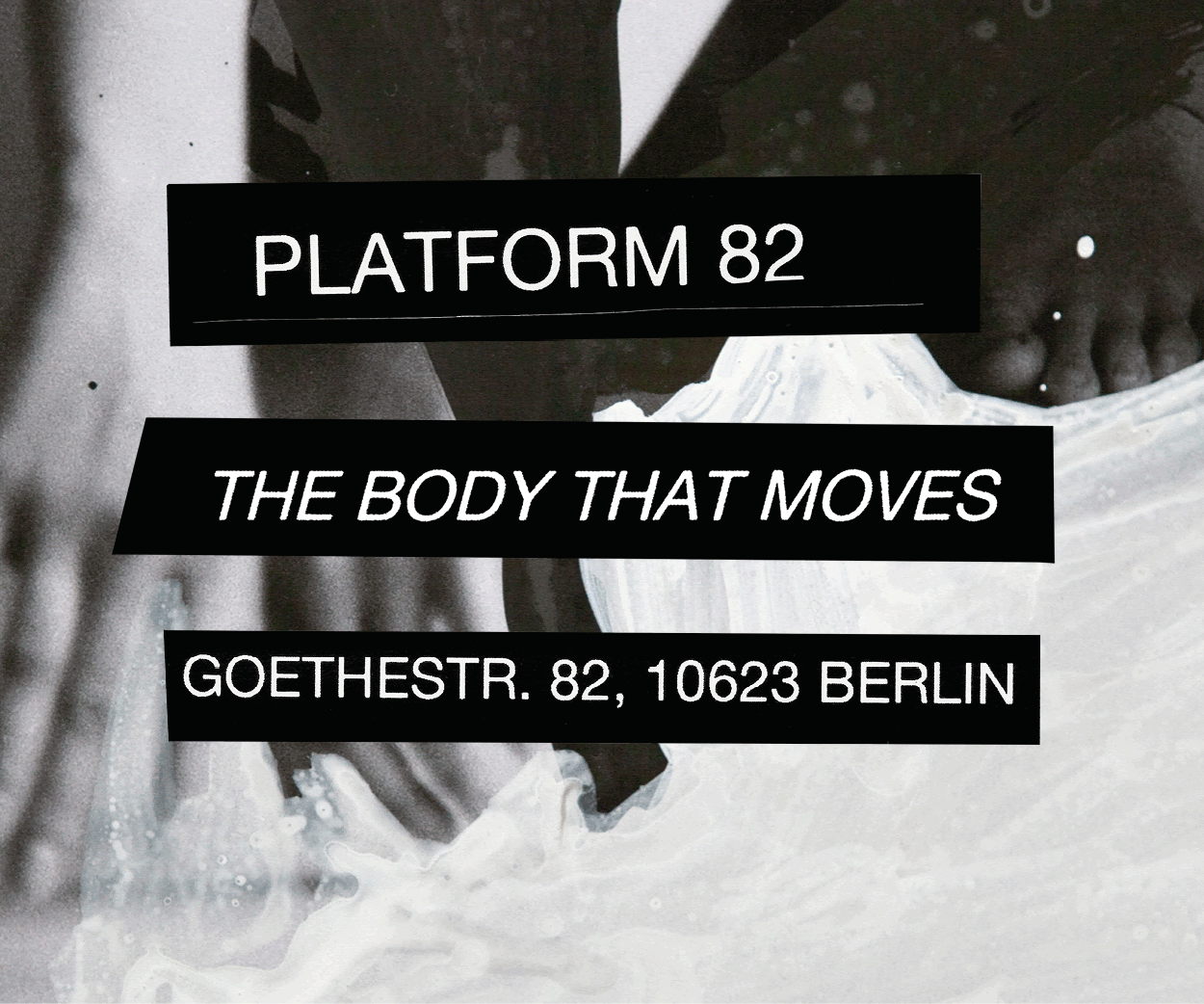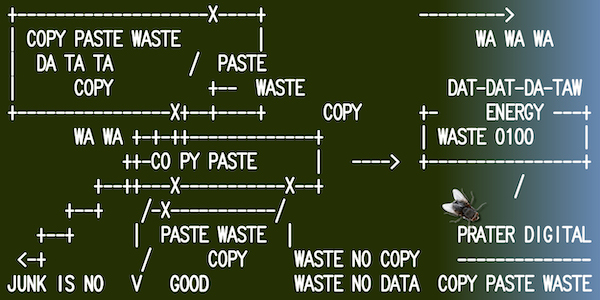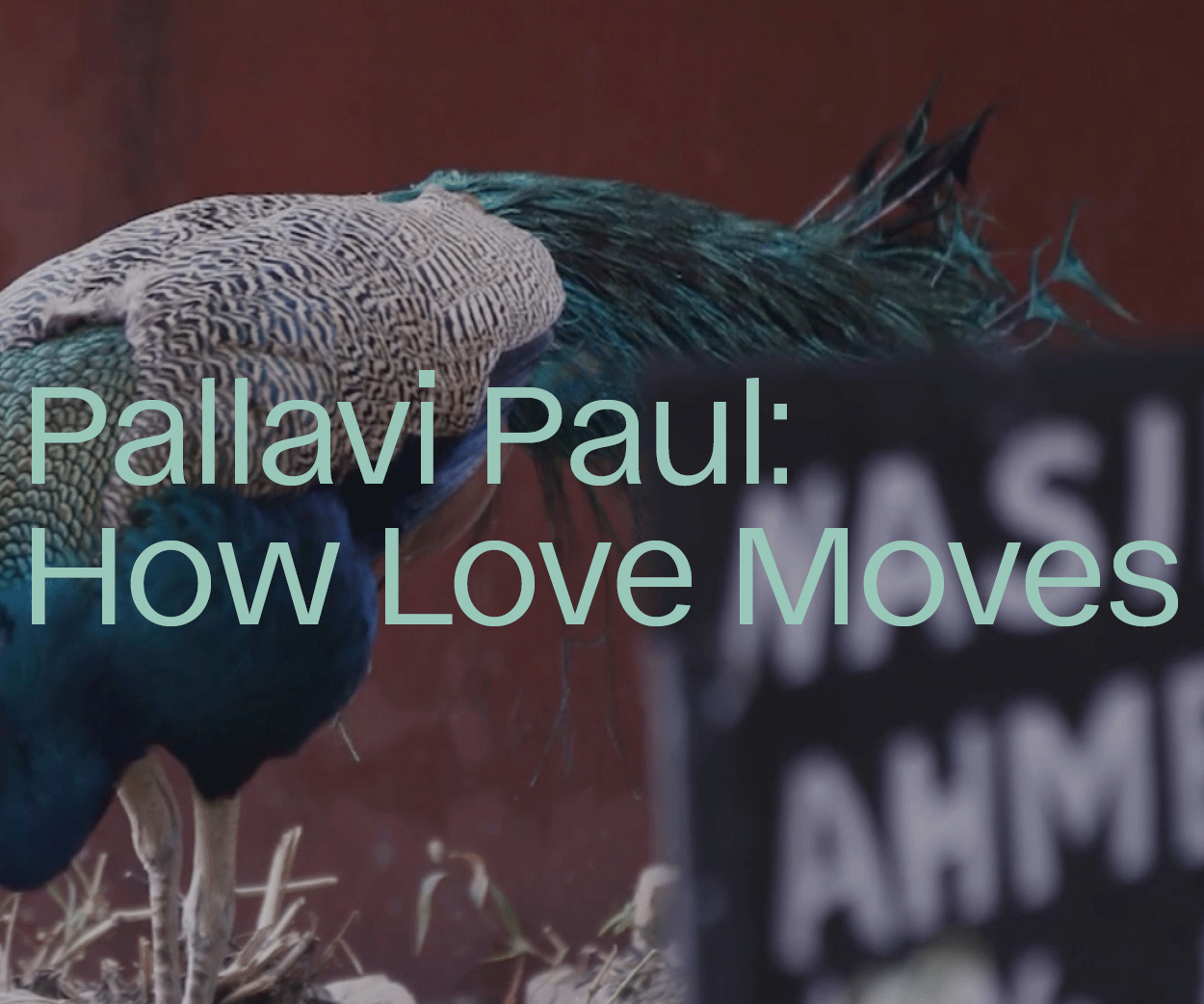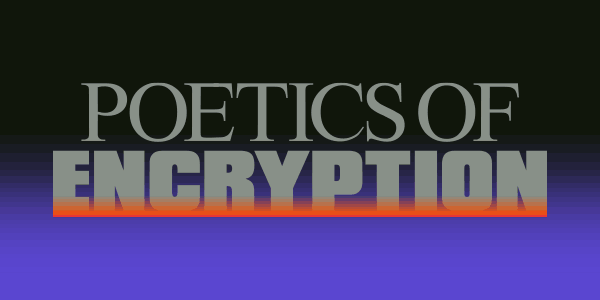by Aoife Donnellan // Apr. 26, 2024
Members of the protest and performance art collective Pussy Riot are currently on tour with their show ‘Riot Days,’ an adaptation of long-time member Maria Alyokhina’s memoir of the same name. The performance combines music, text and theatre to create a show that calls audience members to action.
Pussy Riot’s works have always been centred on criticisms of Vladimir Putin’s regime, most famously with their 2012 performance of ‘A Punk Prayer’ at Moscow’s Cathedral of Christ the Saviour, after which two of the members were imprisoned for “hooliganism.” Riot Days follows Masha, or Alyokhina’s, involvement with the group from her first action in the Red Square in Russia until her last day of imprisonment.
Before their performance of Riot Days at E-WERK Luckenwalde on May 4th, as part of the festival ‘The Drop Out: Tell Them I Said No,’ I spoke with two of Pussy Riot’s members, Masha and Diana Burkot, about collective practice, who has the opportunity to say no, and privilege in the West.
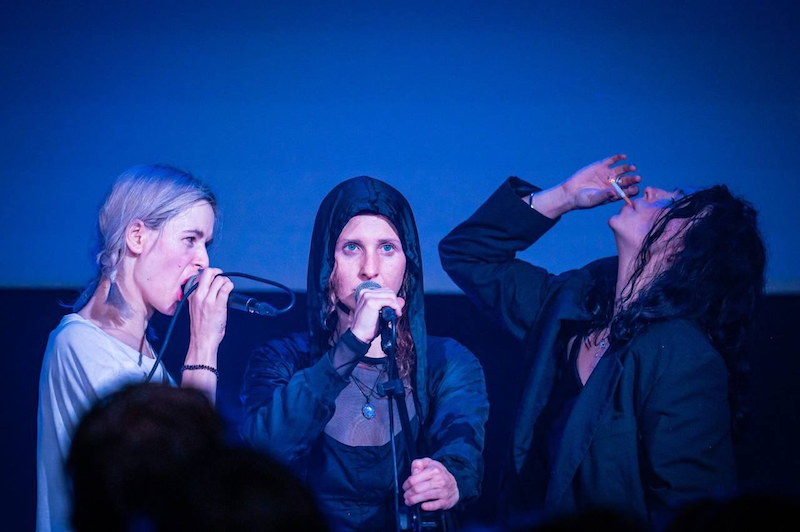
Pussy Riot: ‘Riot Days’ // Photo by Camilla Lund, courtesy of Pussy Riot
Aoife Donnellan: Pussy Riot began as a collective. How does the collaborative nature of your practice impact the work?
Maria (Masha) Alyokhina: Pussy Riot started at the end of 2011 when Putin announced that he would be president for a third time. The majority of us knew each other before starting in Pussy Riot, and we were, and are, different people; artists, activists, independent filmmakers. We started as an anonymous group, but since the moment the three of us were arrested and basically unmasked, our balaclavas became more of a symbol of protest than a symbol of anonymity. Now, it’s been 12 years of our work and activism, so many things have happened with us and with the country.
We explored a lot of different forms of art and activism, ‘Riot Days’ is just one of them. It’s a performance based on my book, basically a live book on the stage. We’re using different genres like music and spoken word, visual art and performance art to spread our message. The message is a call for all the people who come, doesn’t matter who they are, to be activists.
Diana Burkot: In the Pussy Riot band—let’s say band, it’s more like a movement—a lot of people are activists, some of them are musicians, and some of them work in other forms. As Masha already said, it’s a really good match and we can spread the zone of responsibility, somebody’s good at this, somebody’s good at that. Sometimes, for me, it’s even a miracle how all of this actually really works.
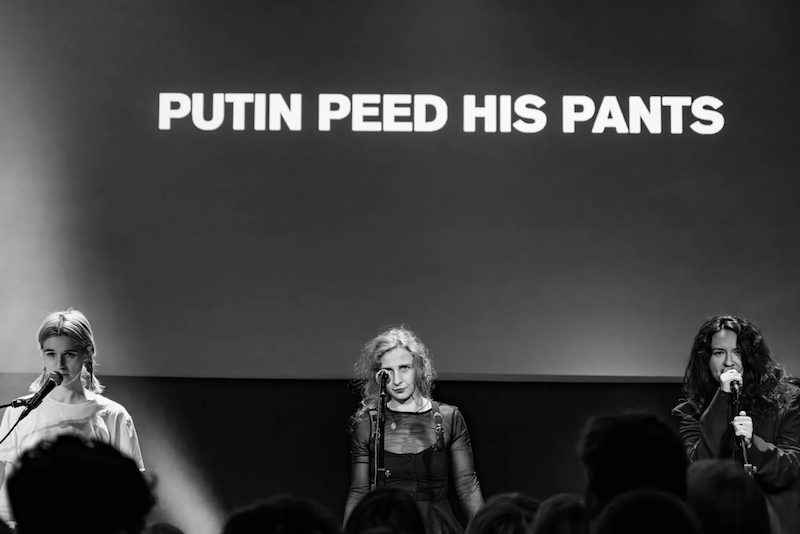
Pussy Riot: ‘Riot Days’ // Courtesy of Pussy Riot
AD: As you’ve mentioned, ‘Riot Days’ is a dramatisation of your memoir, Masha, described as “a mixture of concert, rally, theatre and political happening.” How do the aesthetic qualities of the show interact with the political and personal elements? How did you go about staging a written memoir?
MA: It is also a collective work. I had written a book back in 2016, and my good friend, Sasha Cheparukhin, co-producer of ‘Riot Days’ together with me, inspired and pushed me to bring it to the stage. With the help of our friends who are musicians (one of whom brought me to Pussy Riot all those years ago), and our actors and theatre makers, we bring it all together to create the show.
Practically, the collective work was a lot of rehearsals. ‘Riot Days’ is basically a live thing so when we built it, it was completely different from what you will see in May. We change the show all the time, before the beginning of each tour. Sometimes we cut things, sometimes we add some things. There is one part of the show where we show current political prisoners, their faces and names. We have also added two new songs; one is anti-war, which we wrote just after the full-scale invasion [in Ukraine], and the second one, which we added recently in the Canadian tour, is about the danger of fascist propaganda. We change it because we have a lot of discussions and talks about what is important to us to speak about right now.
DB: It’s not just about the ‘Riot Days’ show. We’ve also started to do an exhibition, so far there have been two in Canada, one in Denmark and one in Reykjavik. If we talk about the ‘Riot Days’ show it’s more about the energy, really punk energy, while the exhibition is more about how to show chronologically, from 2011 up until now, how Pussy Riot changed; what forms of riot, and what actions occurred. Some of them are really well known, like the church, some of them not a lot of people know about, but they are equally important. One of my favourites was in 2012, on Putin’s birthday with rainbow flags, and it was to support LGBTQ+ people.
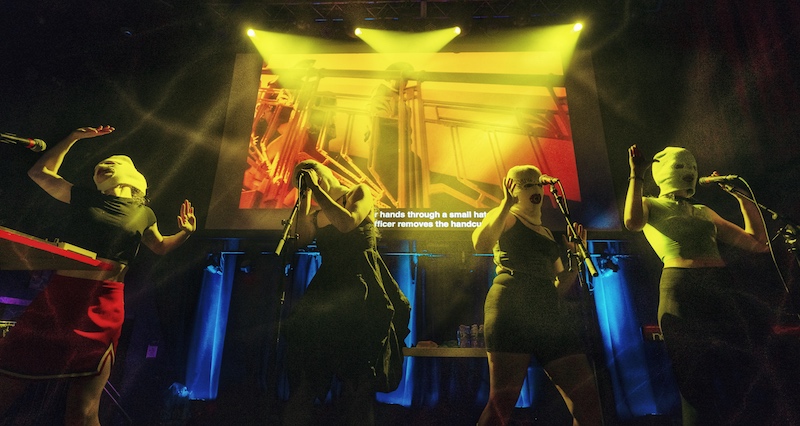
Pussy Riot: ‘Riot Days’ // Courtesy of Pussy Riot
AD: You’re currently on tour throughout Canada and Europe. Have you noticed a particular difference in the work’s reception as you’ve travelled? Have you experienced censorship?
MA: It’s quite surprising because, especially before the United States, we were worried that there would be a time problem and a language problem, because our show is in Russian. We show it with subtitles, and we worried people would not be able to receive it as their own story, close to their hearts. But the response is completely open, people feel it. They laugh, they cry, they say a lot of super amazing things afterwards. After each concert, I sign books so I speak with people a lot and listen to what they are saying. It’s incredible that it works. I hope this time we also will be heard.
DB: In terms of censorship, I was supposed to run a workshop in Hamburg, sometimes I do this because I believe it’s important to communicate with a younger generation, but it was cancelled. These workshops are a reminder of how useful and important it is to know about your rights.
The Hip-Hop Academy booked me, as a member of Pussy Riot, to create music with a social and political statement, and somehow it turned out that this special area in Hamburg, where the Hip-Hop Academy building is, has a lot of Russian speakers who believe in the Russian Orthodox church. Of course, the Russian Orthodox Church, is about hypocrisy, one more tool for propaganda, brainwashing and patriarchy, that collaborates with Putin.
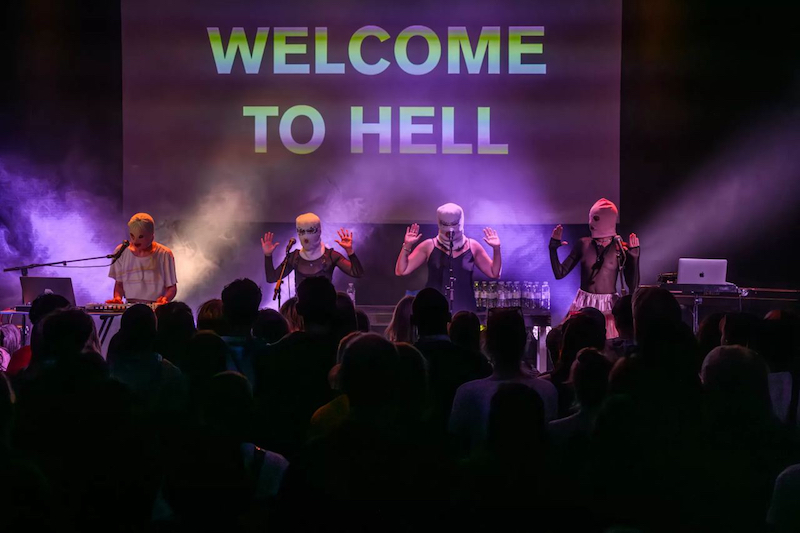
Pussy Riot: ‘Riot Days’ // Courtesy of Pussy Riot
AD: You are performing the show at E-WERK Luckenwalde’s festival ‘The Drop Out: Tell Them I Said No.’ What does the festival’s theme, the privilege of being able to refuse, mean in the context of your performance work?
MA: It’s a really great topic actually, and a really great title, because a lot of people in the West do not understand how privileged they are. There are a lot of questions from foreign journalists: Why don’t people in Russia protest? Why don’t they shut down Putin? It means that we should shout louder because people do not understand the conditions of how people live in the country right now and what has been going on for at least 10 years, but more like 20.
Our story is just one of thousands of stories that are happening right now in Russia. We’ve been quite lucky that we were imprisoned 10 years ago and not now, because of what’s happening right now. You can see part of this in the news, you’ve definitely seen what happened with Alexander Navalny, how easily Putin killed the main, most famous political prisoner and opposition leader. That means that this regime doesn’t give a fuck about any Western reaction, because they understand that it won’t be a proper reaction.
In one way, it is really cool and important that we have this microphone. We have this opportunity to speak and to refuse. But, in another way, it’s a big responsibility for us, because we understand how many people do not have it, and how many people are silenced, just because they are in the country, or just because they are imprisoned and you don’t know their names. Or they left the country and are just not known here. Around one million Russian citizens left the country since 2022, but since 2014, since the first moment when Russia invaded Ukraine, people started to leave, especially a lot of educated people, people who had the money and opportunity to go.
Starting in 2022, some countries started to be aware of what is going on in Russia. For us, it’s important to show that it can happen anywhere, people need to start being aware and feeling responsible for their lives and the politics in their countries, otherwise, it can turn into quite a hell.
DB: I think that’s really important what Masha said, it’s not something special about Russia, it can be any country. People sometimes don’t really understand or appreciate what they have, freedom of speech, and all the privileges of a democratic system. Russia is a good example of how you can lose it, if you’re like: ‘I don’t want to know anything political, that’s boring, I don’t want to be part of it, I don’t need to support feminism.’ It’s only been slightly more than 100 years that women can wear whatever they want to, and they can work, they can have an education. We should fight for that every day, but every small step is really important.
Artist Info
Exhibition Info
E-WERK Luckenwalde
Pussy Riot: ‘Riot Days’
Performance: May 4, 2024
kunststrom.com
Rudolf-Breitscheid-Straße 73, 14943 Luckenwalde, click here for map



